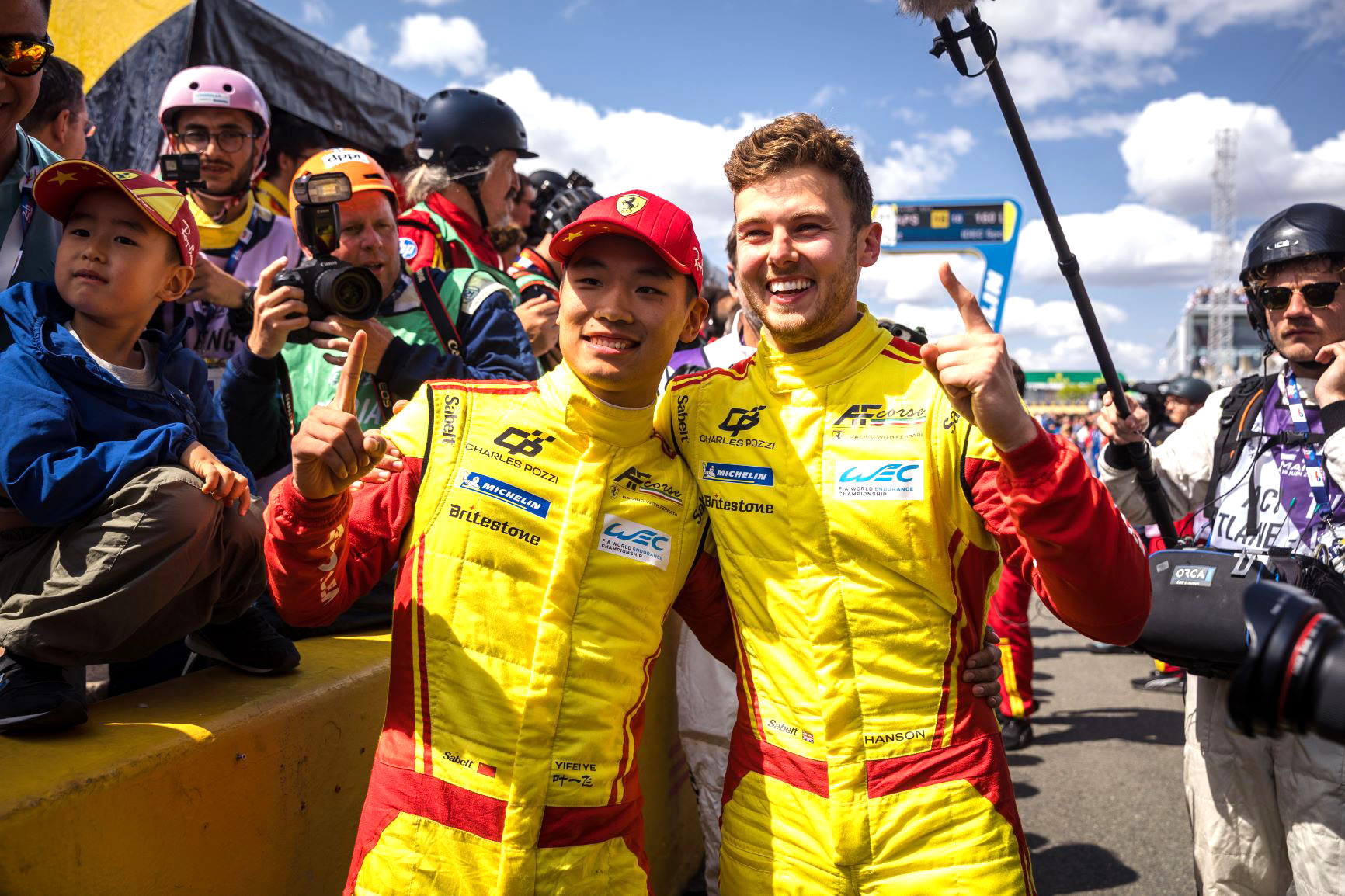
There was a sense of destiny for Ye Yifei at Le Mans.
At just 14, the boy from Xi'an, capital of Shaanxi province, arrived alone at the hallowed Circuit de la Sarthe to chase a dream far bigger than himself. Seven years later, he came heartbreakingly close — leading in the final lap of his debut 24 Hours of Le Mans before his car stalled and forced a gut-wrenching retirement.
ALSO READ: Le Man of the hour
This summer, though, Ye completed that unfinished lap. On June 15, the eve of his 25th birthday, he stood atop the podium as the first Chinese driver ever to win the famous endurance race, guiding the No 83 Ferrari 499P to a landmark victory with teammates Robert Kubica and Phil Hanson.
For Ye, it wasn't just a win — it was the closing of an 11-year circle, written in speed, heartbreak and redemption on one of motor racing's most legendary tracks.'
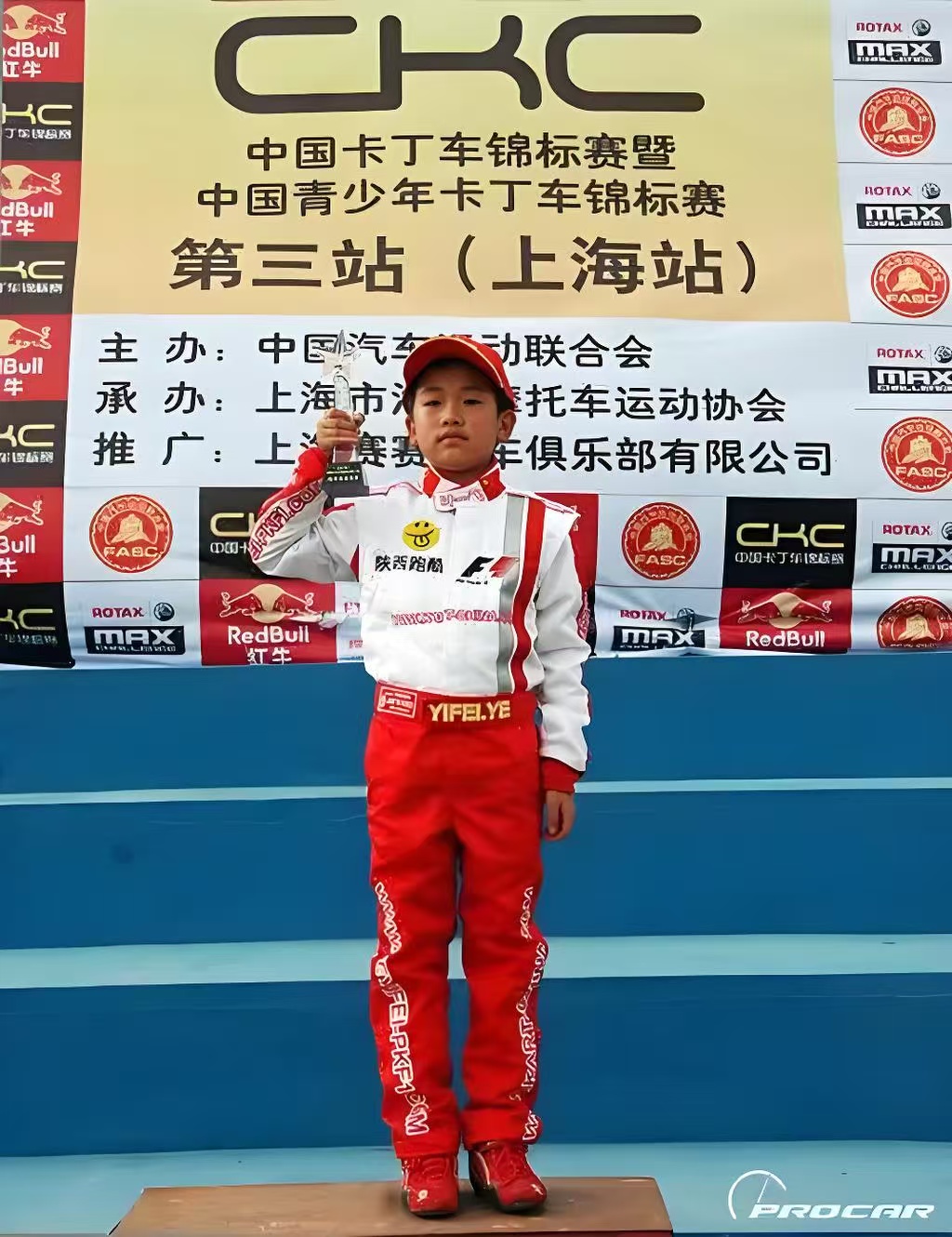
"The Le Mans circuit means a lot to me," Ye said. "After winning this time, many of my teachers and friends from back when I was 14 sent me messages to congratulate me, which made me really happy."
"A lot of them even came to the track to cheer me on — it felt a little like a home race."
Ye's first brush with speed came at eight years old, in a battered amusement park go-kart in Xi'an. "I was overtaking tourists, feeling the thrill of it all," he recalled. It became an obsession, and with his father's unwavering support, Ye began carving out a path toward professional racing.
READ MORE: Norris wins chaotic F1 British Grand Prix after Piastri penalty
By his early teens, he was flying to Shanghai every weekend, leaving his schoolbooks behind in Xi'an. The routine was grueling — Friday night flights, Saturday spent grinding out laps at the track, Sunday evenings back home.
"The first time I trained in Shanghai, I saw how much better the kids there were. The gap felt huge," Ye said.
The humbling quickly turned into hunger. Those early sessions were brutal, but week after week, he closed the gap. Then he began to match them, before finally surpassing them, winning back-to-back national karting titles in 2011 and 2012.'
"You could say I 'graduated' from karting in China," he said.
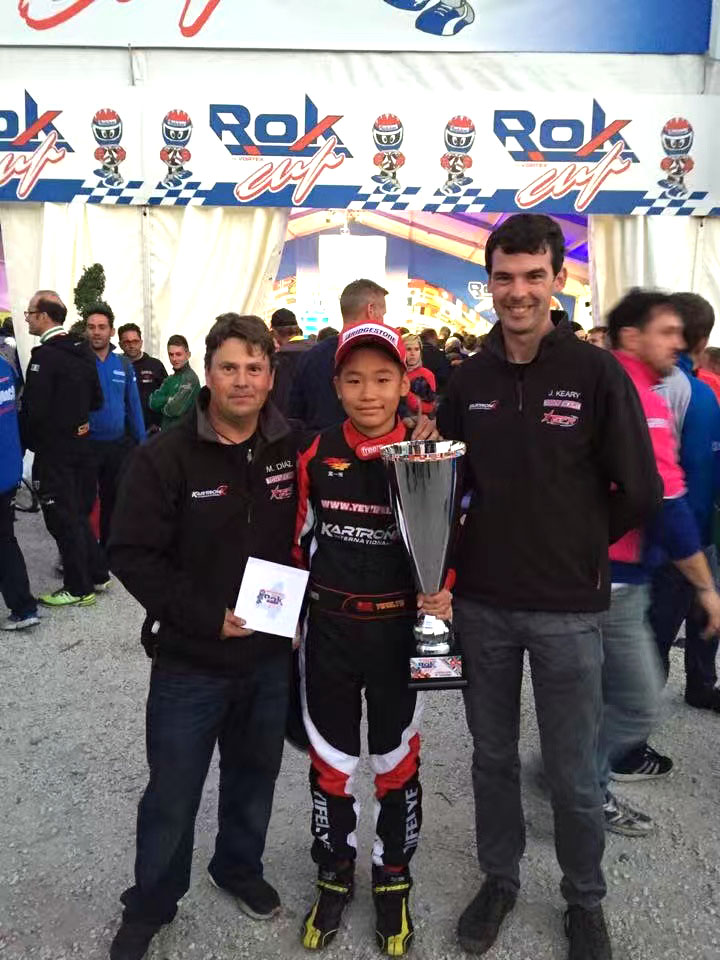
Bold moves
At 12, Ye began traveling alone to Japan for tougher competition. "Karting is about building muscle memory — training your body to instinctively feel what the vehicle is doing," he explained.
"In Europe, kids my age were already racing against fields of 100 or more drivers. By 14 or 15, they were preparing for Formula cars."
So Ye made his boldest move yet. At 14, he left China for Le Mans, the spiritual home of endurance racing. He barely spoke a word of French. "I had to learn it through English — it felt impossible at first."
Homesick and exhausted, Ye would tune into Chinese radio broadcasts on his phone, the familiar voices providing an emotional lifeline. By his second year, he spoke enough French to resume his studies, and even outscore his classmates in the national exams.
Balancing school and racing, Ye's persistence paid off. In 2016, he won the French F4 Championship, and by 2019 he had joined the Renault Sport Academy, driving in F3.
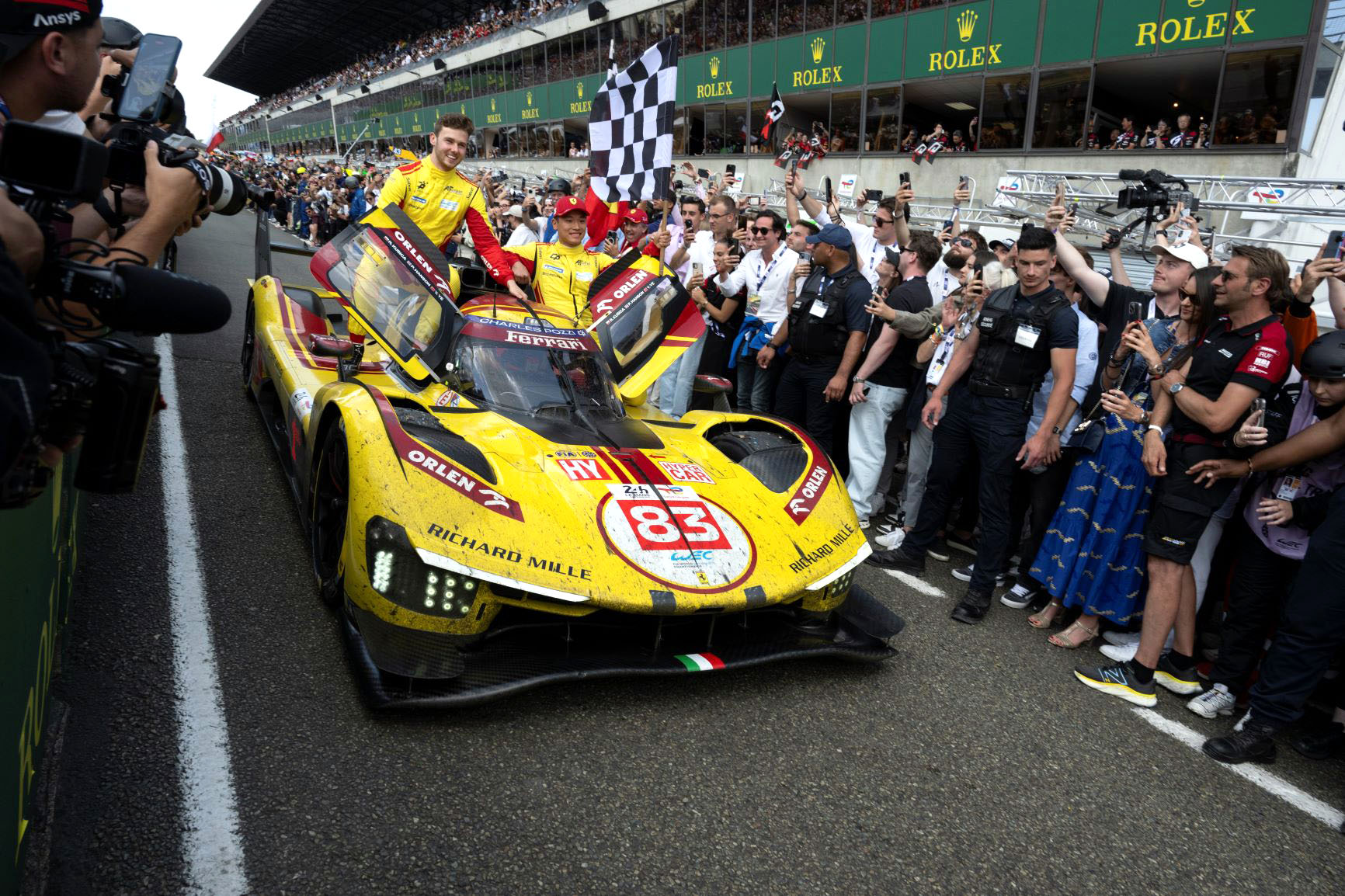
The next step was F2 and a shot at F1. However, in 2020, Ye made another bold choice: to switch to endurance racing.
"At the time, I knew many top manufacturers were preparing to join Le Mans' top class. I saw it as a great opportunity to step onto the world stage as a professional racing driver," he explained.
READ MORE: Norris wins F1 Austrian GP from Piastri to narrow title gap
The transition proved fruitful. Ye collected multiple wins across endurance events, but, his Le Mans debut in 2021 delivered what he calls the darkest moment of his career.
Taking over in the final two hours of the race, Ye clawed back a 20-second deficit to seize the lead. By the last lap, he was 40 seconds ahead of second place, poised to make history. But, as he exited Turn 1, his car suddenly broke down. Unable to restart, he and his teammates were forced to retire.
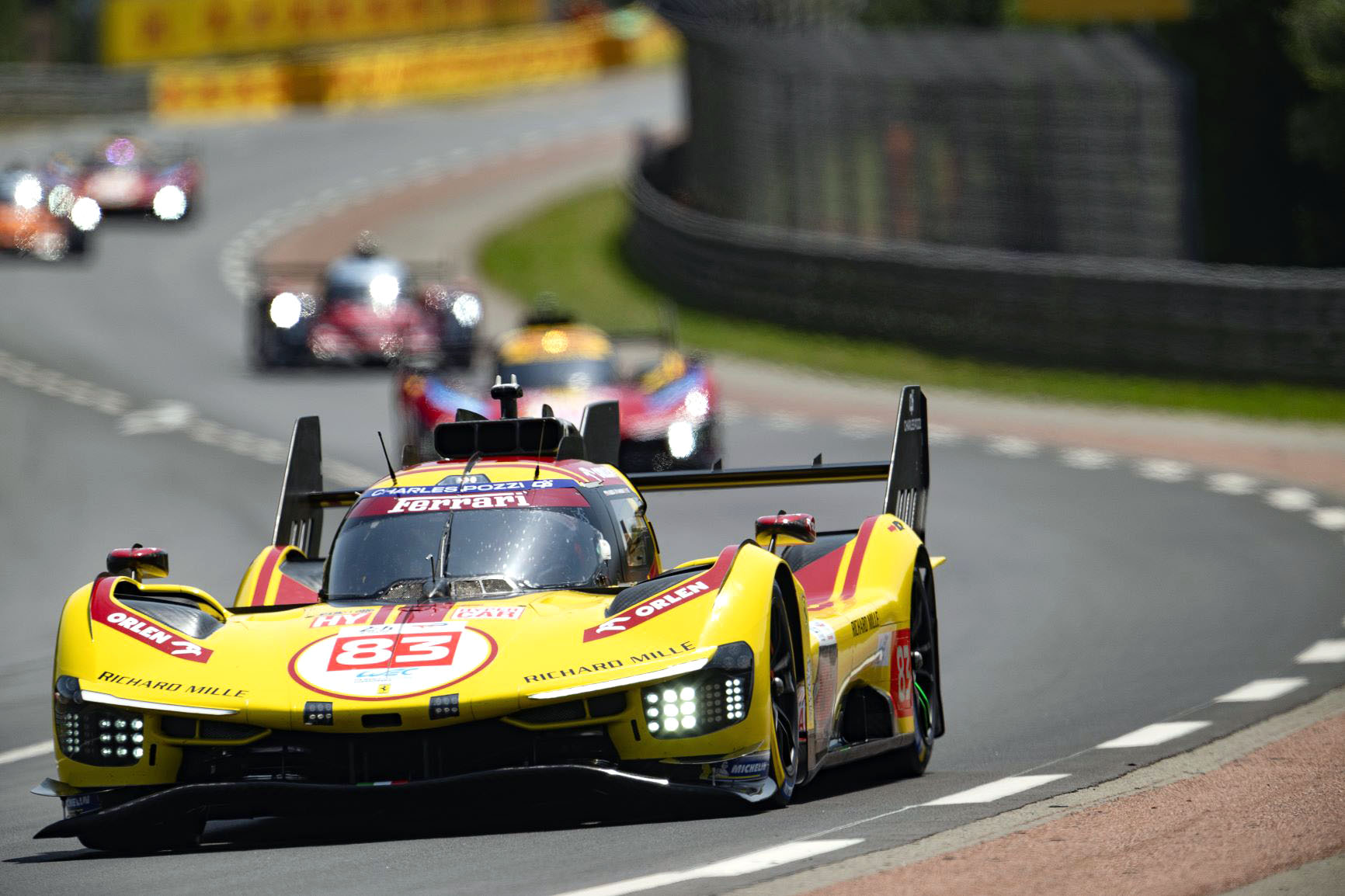
"It was unbearable. The car just stopped on the last lap. If we had crossed the line, it would've been historic," Ye said. "I couldn't recover. I just kept crying."
Instead of breaking him, the desolation of victory snatched away at the last moment steeled Ye's resolve. "I kept reminding myself to stick to my original dream and keep working. Setbacks make you stronger — they prepare you for bigger challenges ahead."
That display of skill and determination didn't go unnoticed. Soon after, Ye secured a contract with endurance racing royalty Porsche. It was the step that led him to, arguably, the most famous motor racing marque of them all and another lifelong dream. By 2024 he was an official factory driver for Ferrari.
In his second season with the marque, Ye finally conquered Le Mans.
Since its inception in 1923, the 24 Hours of Le Mans has been a linchpin of the motorsports calendar — endurance racing's equivalent of the Monaco Grand Prix in Formula One or the Rallye Monte-Carlo in the World Rally Championship. Its grueling 24-hour nonstop format places extraordinary physical demands on drivers, particularly their necks.
READ MORE: Piastri wins F1 Chinese Grand Prix
To prepare, Ye revealed that he regularly trains his neck by wearing a helmet with an additional 20 to 30 kilograms of weight, repeating a single exercise up to 200 or 300 times.
Ye incorporates mental training too, often engaging in reaction-based drills with his coach. "We play games under pressure, where I have to focus entirely on my movements instead of the outcome. It helps me handle emergency situations in the car when the pressure is on," he explained.
When he's not racing, Ye spends time in the Alps — across France, Switzerland and Austria — working on his physical endurance. He enjoys cycling and mountain hiking.
"These outdoor workouts not only improve my physical condition, but also help me find a sense of inner calm during races," Ye said.
Making an impact
That discipline hasn't gone unnoticed in the racing world. As Ye's reputation grows on the international stage, so too does the excitement back home in China.
Kathy Shi, an F1 commentator on CCTV, described Ye as "an ideal endurance driver".
"He has excellent single-lap speed, he's strong in both offense and defense, and he maintains impressive consistency over long distances," Shi said.
Shi noted that motor sports in China entered a new era when Formula One debuted in Shanghai in 2004. Ye himself was in the stands as a young fan at the Chinese Grand Prix, an experience that sowed the seeds of his racing dream.
READ MORE: A driving force
"For many kids in the crowd, seeing F1 planted a seed. They found their idols on the track," Shi said. Ye's historic win at Le Mans, she adds, marks another pivotal step for Chinese motor sports.
"He may inspire more children to take up karting and pursue racing. One generation of drivers inspires the next, and with more young people entering the sport, we'll see even stronger Chinese drivers emerge."
From China to Japan, and then to Europe, Ye has immersed himself in the global motor sports community. Fluent in Mandarin, English, French and Japanese, he's brought a Chinese voice to circuits around the world — and now he's learning Italian as well.
After a brief stint in the French Alps pedalling his way up snaking mountain roads, reflecting on his recent achievements and of races still to win, Ye is ready for second half of the season, which will include races in the United States, Japan and France.
But not before he climbed back into cockpit of his Ferrari to challenge for the 6 Hours of Sao Paulo in Brazil on Sunday, with his sights firmly set on his next goal: winning the FIA World Endurance Championship title.
Contact the writer at liyingxue@chinadaily.com.cn


